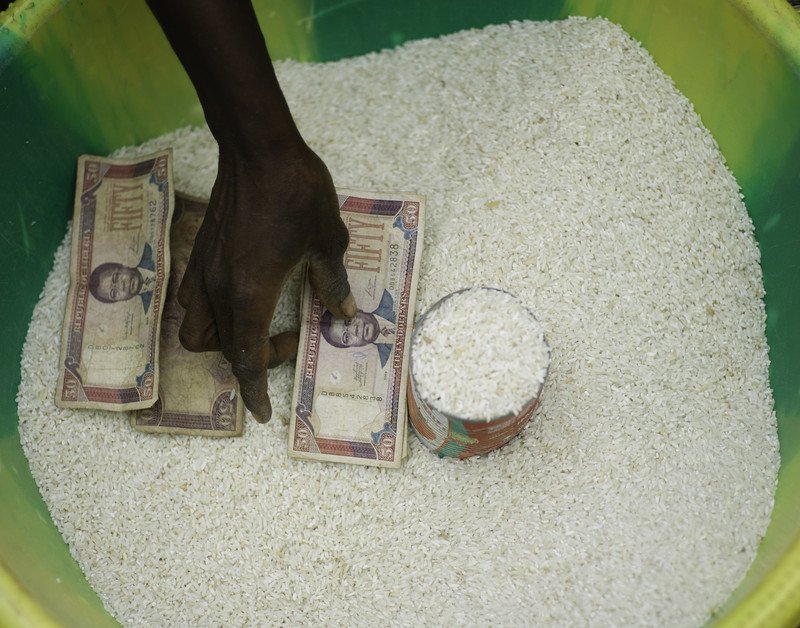Monrovia, Liberia – The global rice market is facing significant upheaval as India, one of the largest rice exporters, has increased tariffs on rice production to 22%. This move is expected to cause a ripple effect, driving up rice prices worldwide, including in Liberia.
According to sources, the Liberian government has already taken proactive steps by holding discussions with major rice importers to stabilize the market. The Minister of Commerce, Amin Modad, convened an emergency meeting with importers to address the impending crisis and ensure that rice remains available and affordable for Liberian consumers.
“The government is committed to keeping rice prices stable and ensuring that this essential commodity remains accessible to all Liberians,” said Minister Modad. “We are working closely with importers to find a balanced solution that considers both the global market challenges and the needs of our people.”
The importers initially proposed increasing the retail price of a 25kg bag of rice from $17.50 to $20 to align with the rising costs. However, the Ministry of Commerce firmly rejected this request, arguing that it would place undue financial strain on Liberian households.
“The meeting was heated, with importers expressing their inability to operate at a loss,” revealed an insider. “But the government stood its ground, insisting that the 25kg bag of Indian Parboiled rice cannot be sold for $20 on the retail market.”
The current economic turmoil began in October 2023, under the George Weah administration, when rice importers first requested a price increase. This request was not approved, likely due to political considerations during the election period. In February 2024, the importers renewed their request with the new administration, citing increased production costs due to additional tariffs and extended shipping routes caused by geopolitical tensions in the Middle East.
Despite these challenges, Minister Modad appealed to the importers to maintain the price at $16.50, highlighting the political sensitivity of rice in Liberia. The importers and the Ministry of Commerce eventually agreed to this price, with a commitment from the importers to invest in local rice production. This agreement included:
- Maintaining the retail price at $16.50 until May.
- Investing in local rice production to reduce dependency on imports.
However, the situation escalated further when, on May 14, the importers requested another price increase to $21 due to an additional 4% tariff hike by the Indian government. After extensive negotiations, the following decisions were reached:
- The retail price would be increased to $18.50.
- Importers would provide different varieties of rice at this lower price.
- Assurances were given to avoid any shortages in the market.
- Importers committed an initial $200,000 towards local rice production, with plans to increase this investment.
Joshua, a petty trader in Monrovia, expressed his concerns about the price hikes. “We are already struggling to make ends meet. Any increase in rice prices will hit us hard. The government needs to find a way to support both traders and consumers.”
Felecia Doe, a rice store owner, echoed similar sentiments. “It’s not just about the price; it’s about availability too. We need a consistent supply of rice to keep our businesses running. I hope the government and importers can work out a solution that benefits everyone.”
Economic experts agree that the long-term solution for Liberia lies in investing in local rice production. This move would reduce dependency on imports and mitigate the impact of global market fluctuations. As Liberia navigates this challenging situation, the focus remains on finding sustainable solutions that support both the economy and the well-being of its citizens.

